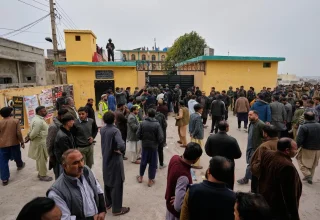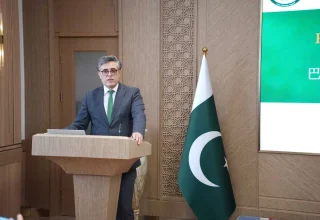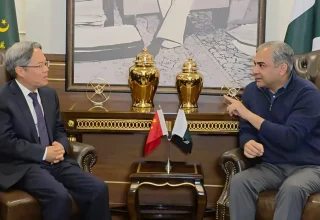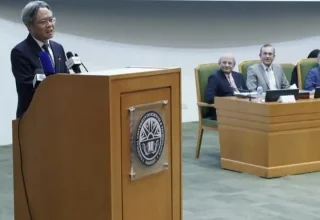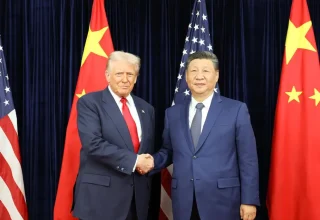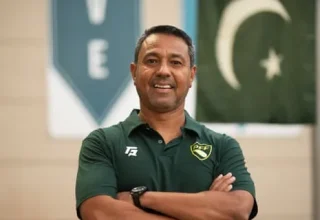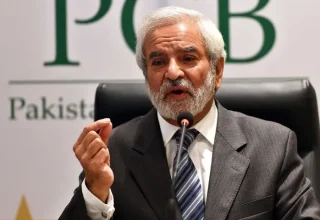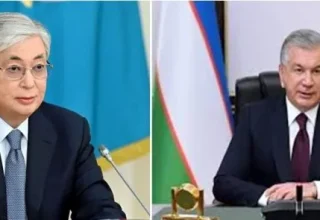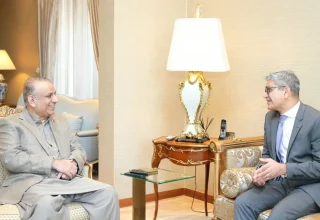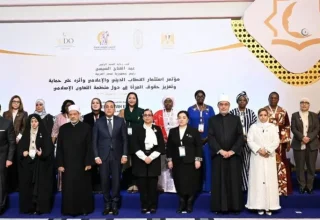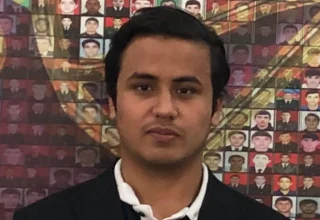
The Russian Federation has been at war against Ukraine which is essentially a battle against the Eastern expansion of NATO which rings doldrums in almost every capital of the Asian region. The West’s attempt to compel or subdue Russia has been met with unwavering resolve, resilience and resistance thereby presenting a unique model of resistance that can’t be ignored in decades to come.
Ever since, the rightful defensive maneuverings and postures that the Russian government adopted following the Eastern expansion of NATO through Ukraine, the West has retorted to choosing sides rather than maintaining constructive neutrality and opting for dialogue over complete destruction. It has been the main cause of not achieving any constructive dialogue or truce in the ongoing Russia-Ukraine conflict.
The United Front of the West have imposed unprecedented economic and political sanctions over various sectors of the macro-economy such as banking, finance and digitalization, evident by the fact that around 70 percent of assets of Russia’s banking system are under sanctions and over 300 billion euros have been unlawfully seized by the EU belonging to the banking sector.
Not only that but Russian access to high technology goods such as AI and foreign direct investments have been curtailed but its own self-reliance has successfully mitigated all hurdles and maintained its economic stability and modernization drive.
It seems to be a naked attempt to subdue Moscow through paralyzing the economy thereby forcing a foreign policy change and cutting off its capacity to finance its rightful defense of its sovereignty.
Despite this, Moscow under the visionary leadership of President Putin quickly adapted its economic policy by introducing a fluid fiscal buffer, import substitution and monetary policy, thereby allowing its economy to survive despite an attempt to isolate Russia.
It is noteworthy that the EU is still reliant on Russian gas, despite forceful political statements, thereby revealing a glaring contradiction between geopolitical rhetoric and economic realities and hence underpinning a strategic vulnerability. Moreover, Moscow has timely turned towards friendly eastern countries. The Russian oil exports have still persisted.
Moscow rerouted its oil exports from Europe to China, Turkey and even India at a discounted rate thereby providing a reduced yet steady stream of revenue. In this regard, Moscow’s strategic alliance with Beijing is critical whereby China has emerged as a critical economic and political partner. Despite rigorous pressure from the West China has maintained its position of constructive neutrality in the Russia Ukraine conflict and has offered itself as a vast market for Russian energy, supplies, consumer goods and even financial infrastructure such as the CIPS system.
Additionally, Global south and African states have further postured themselves with Russia rather than against it. This reiterates that Moscow has not been isolated from the world, but rather the collective West has isolated itself from Russia.
Furthermore, Russia has successfully ended its reliance on western imports. Moscow’s heavy investment into domestic agriculture technology, and capacity building have transformed Russia into a major global grain exporter, thereby achieving food security, self-sufficiency and stability. Russia has emerged as a competent automotive producer through simplified models and, in some places, through Chinese components.
Development of domestic semiconductors with mutually befitting partnerships with Chinese suppliers have significantly reduced reliance on Western chips and chip software. This underpins that Moscow through the astute leadership of President Putin has emerged victorious through perseverance which is further evident by the 12 percent rise in the import substituting industries.
Moreover, the economic indicators do not lie. In 2024 the Russian GDP increased by 4.1 percent whereby unemployment is at a meager level of 2.5 percent and inflation rates for 2025 remain at 6.5-7 percent. Not only has the GDP growth been more than many western countries but it clearly displays that the re-orientation of the economy has been a successful venture.
Moscow remained steadfast in the face of western attempts to subdue Russia through economic sanctions, underpinning its fluid nature, adaptiveness, and strategic preparedness. Decades of development of defensive industry self-sufficiency and operationalization of parallel import markets have resulted in mitigation of the impact of western sanctions.
Hence, Moscow’s reorientation towards war economy allowed fostering of macroeconomic stability thereby creating an atmosphere of steadfastness in the face of western economic aggression.
It is pertinent to mention that while Russia remains economically stable, it maintains its primacy over the western defensive capabilities. The successful testing of the Burevestnik nuclear capable cruise missile and the Poseidon which is an autonomous nuclear warhead carrying UUV clearly demonstrates Russia remains decades ahead of Western coalition in its defensive capabilities.
This further outlines Moscow’s asymmetric capabilities which powers innovation and unpredictability to offset Western self-proclaimed defensive dominance. Moreover, it modernizes Russia’s deterrence triad and cements Russian dominance.
In summary, Russian economy is still stable and progressing towards greater sustainability. Apparently all efforts of the West and the EU are getting no gain against Russia because of its visionary and bold leadership of Putin and diversity of its economy.
The Western tall claims of aging population, economic stagnation & stagflation, political polarization and societal unrest of Russia, it is writing a new chapter in the global history of resistance and resilience.
It fears that the most recent US conducted nuclear missile test may start another round of nuclear arms race in the region and around the globe. Sincere efforts should be carried out to truce Russia-Ukraine conflict having constructive neutrality.
Zulkafil Hassan Khan
Executive Director: The Center for Knowledge and Public Policy
TILS/University of London





